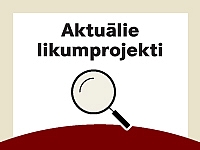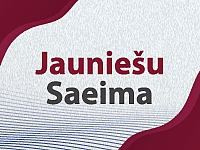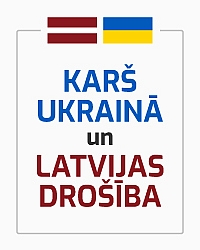On Thursday, 9 June, the Saeima supported the draft of the new Renewable Energy Law in the first reading.
As a result of examining the draft law in the Economic, Agricultural, Environmental and Regional Policy Committee and discussing it at the plenary sitting, MPs concluded that its current version needs major improvements. The responsible committee noted that in subsequent readings, the content of the draft law will change significantly because of the Energy Strategy that the Ministry of the Economics must draft by October.
The aim of the draft law is to encourage the use of local renewable energy resources for the needs of the economy, to create a stable environment for long-term investments in the production of renewable energy and to raise the ratio of the renewable energy in end consumption up to at least 40 per cent by 2020.
The draft law sets forth the rights and obligations of national and municipal institutions with regard to renewable energy, conditions for producing renewable energy, the rights and obligations of producers, as well as mechanisms for encouraging production and consumption of renewable energy.
In order to encourage consumption of electricity from renewable sources, it is planned to introduce various mechanisms. One of them is a subvention for the sale of electricity that is produced from renewable energy sources. A merchant that produces electricity from renewable sources and sells it, would receive a subvention, which, in cases defined by law, consists of a capacity component, a greenhouse-effect gas emissions component and an agricultural component. Authors of the draft law believe that this support mechanism will encourage the sale of heat produced by cogeneration.
It is also planned to support connecting renewable energy generators to the electrical grid. This support would apply to generators with an installed capacity of less than five megawatts. According to the draft law, it is planned to develop a roster of applicants who wish to be connected to the electrical grid. The transmission system operator will manage this roster and make it available on its website.
In line with the draft law, national and municipal institutions will be entitled to create other support mechanisms to encourage consumption of renewable energy (power and heat). These mechanisms will be implemented according to legislative acts regulating the supervision of support to commercial activities.
The draft law also includes a support mechanism for households that are autonomous generators of power because they own or use devices for generating electricity from renewable resources.
The deadline for submitting proposals for the second reading of the draft law is 15 September.
Saeima Press Service









